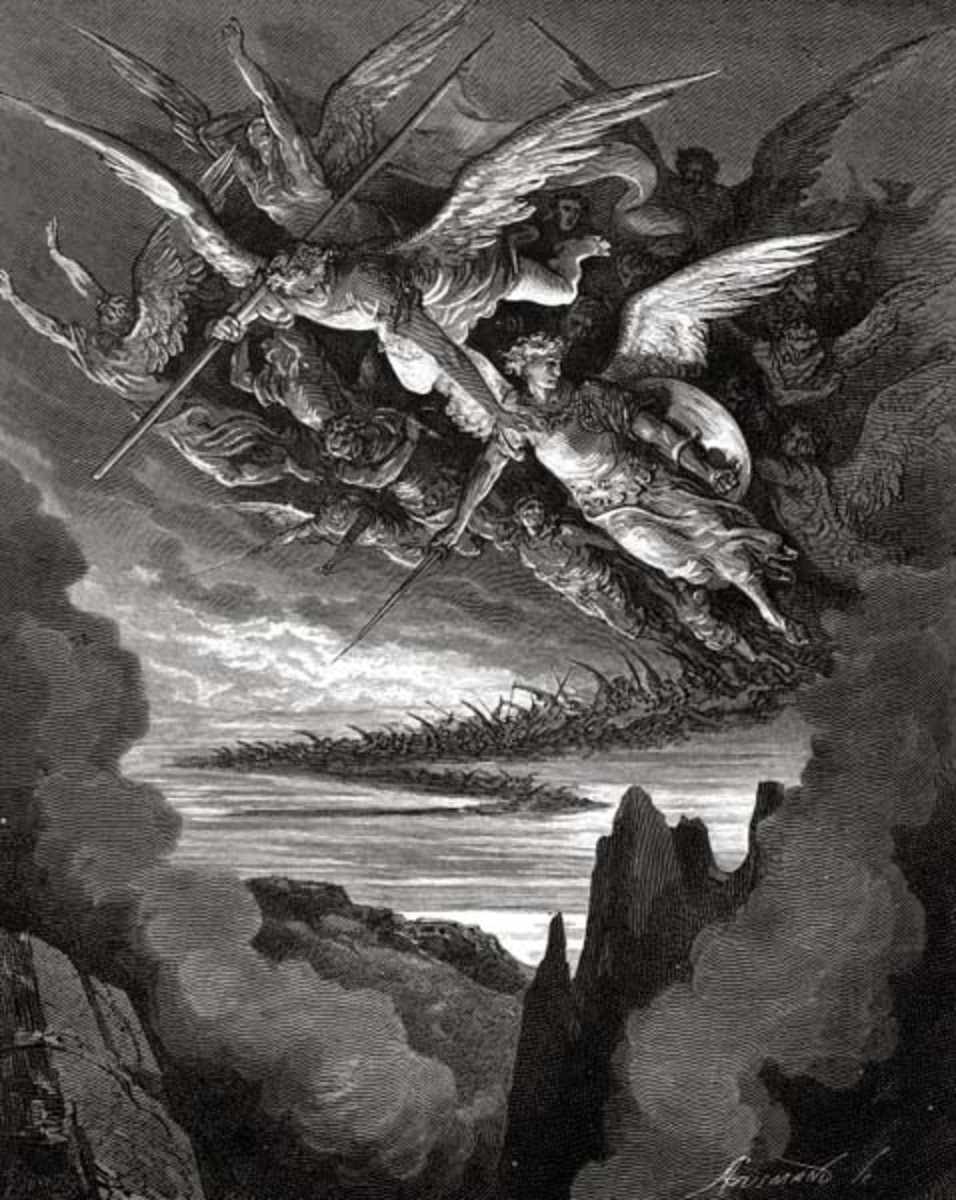Literary Origins: Virgil's Appropriation of the Homeric Epics
The Central Challenge for Virgil’s Appropriation of the Homeric Epic
Given the place in western literature both Homer and Virgil occupy, that is the place of a forefather standing far before other great literary minds and achievements, the relationship between the two takes on special significance. In fact, it is the nature of this relationship between the epics of Homer and the epic of Virgil that defines, for the most part, how the western literary tradition will relate itself to its own predecessors. This essay will demonstrate how the relationship between Homer and Virgil is one based upon the appropriation of the former by the latter. Beyond this, this appropriation will be analyzed to understand not only the difficulties it presented Virgil in his specific task, but also how those difficulties have become part of the western literary tradition’s understanding of its relationship with and obligation to the literature of the past.
Homer & Virgil
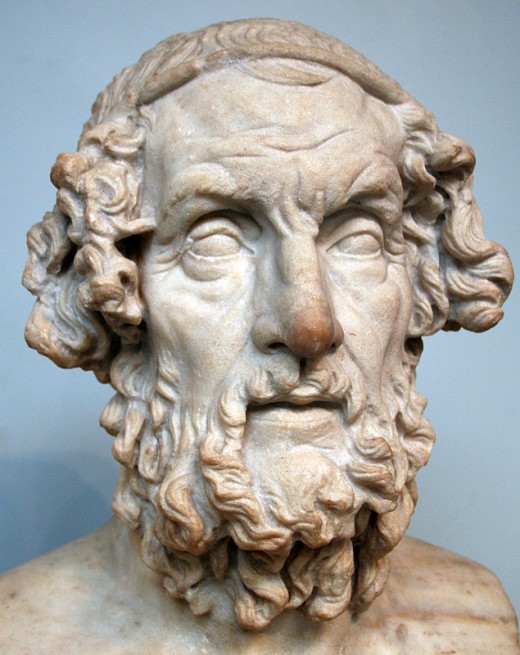
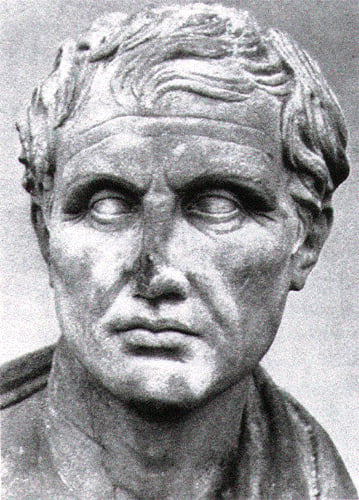
This presents several immediate tasks. The first of these is to understand what Virgil is appropriating from the Homeric tradition. The second would become an analytical assignment of determining why Virgil appropriated what he did as well as examining the difficulties in his specific appropriations. The last task would then become to examine what this specific appropriation says about a much larger western literary tradition that has since followed it.
The question of what Virgil appropriated from Homer is both difficult and easy to answer. The easy answer is everything. Form, plot, epic device, and large and small elements of the story all come from the Homeric tradition.
Evidence for this is everywhere. In Book III, Virgil has Aeneas recount sea adventures that parallel Odysseus’s travels in Books VIII-XII in the Odyssey. Book V of the Aeneid directly appropriates its funeral games from Book XXIII in the Iliad. Furthermore, Virgil’s underworld in the Aeneid, Book VI is obviously based upon the underworld Odysseus visits in the Odyssey. In Book XI, Aeneas’ armor and Achilles’ armor are described in nearly identical fashion, and so are the climatic duels between Achilles and Hector and Aeneas and Turnus. In all these cases, large and small elements of plot, form, and story have been appropriated by Virgil.
Odysseus Vs. Aeneas: Sailing from Troy
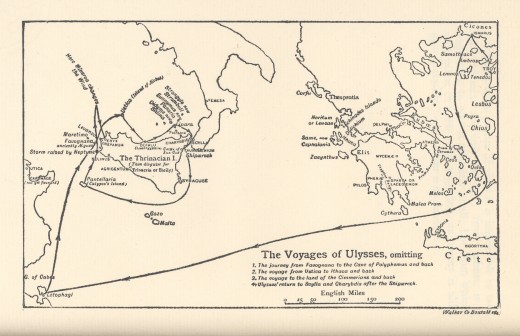
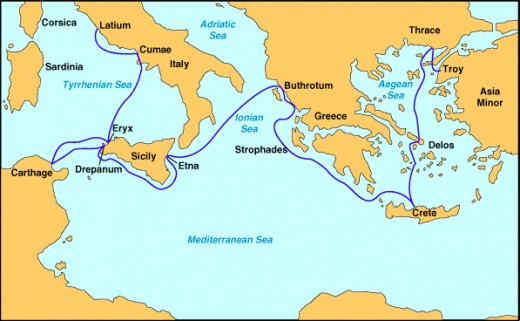
Turning to epic device, Virgil utilizes both the epic simile established in both Homeric epics and the use of prophecy and prophetic signs. Both of these borrowings are so profuse that one cannot turn more than a few pages without running into some sort of prophecy, omen, or at least an epic simile. Virgil’s gods also take an active interest and role in the lives of humans much like they do in Homer. In nearly all ways, Virgil’s epic reads as if it was intended to have come from the same hand that composed the Iliad and the Odyssey. Even the fate of Aeneas, the hero of Virgil’s epic, is taken from the passage in the Iliad in which Homer has Poseidon say:
For it is destined that Aeneas escape
And the line of Dardanus not be destroyed
And disappear without seed—Dardanus,
Whom Zeus loved more than any of the sons
Born from his union with mortal women (Iliad 20.307-311).
Rather than continue to turn over the over-fertile ground of what exactly Virgil has appropriated, it suffices to say he took everything he could get his hands on. This ubiquity of appropriation impels interest in the question to be answered next. That question pertains to why Virgil appropriated so much of the Homeric epic and what difficulties, if any, did this endeavor present him?
It becomes necessary to identify, if possible, Virgil’s intent in composing the Aeneid. Lombardo tells us, in his preface, that Augustus himself encouraged the composition of “the national epic of Rome." Lombardo goes on to say what has already been discussed here as appropriation, obvious from reading the epic, “Virgil established Rome as successor to Troy, giving both his city and his poem a Homeric lineage.” What is more interesting, perhaps, is the fact that ancient biographers tell us Virgil requested the manuscript destroyed while on his deathbed. Lombardo goes on to give evidence of a growing literary understanding of Virgil’s epic as subverting its dynastic intent.
Get Homer for Your Kindle!
Read Homer and Virgil on Your New Kindle!
For this article, it remains enough that Virgil was ultimately dissatisfied with his work. This means there was some challenge in his enterprise he felt he did not overcome. This dissatisfaction could stem from, as Lombardo and others suggest, uneasiness with the commissioned enterprise at hand. It could, on the other hand, express Virgil’s dissatisfaction with his ability to realize this enterprise within his epic. This could speak either to Virgil’s perfectionism or the inherent irreconcilability between his appropriated sources and his dynastic intent. Furthermore, Virgil’s task is slightly more complicated and subtle than has been recognized thus far; he not only has to write an epic that aggrandizes Rome, but more specifically Augustus, who is encouraging the work, and must certainly expect a certain amount of praise, which Virgil does not fail to deliver,[1] from the work. This makes the enterprise suspect, for anytime someone wielding supreme power is, as Lombardo mentions, receiving private readings of one’s epic that should glorify his nation, but at the same time glorify him more, there must be a certain amount of tension, to say the least, involved in the writing process.
The answer as to why Virgil appropriated Homeric tradition is that it effectively provides a historical and mythological tradition from which to illustrate that Rome, through the epic, is the greatest nation, far surpassing the ancient texts of the Greek heroes handed down to the Roman’s from their forefathers. The challenges that appropriating Homeric texts for such an end presents, can be understood categorically.
[1] See Virgil, 1.343-345, 6.940-957, 8.774-779.
Fragments of an age gone by
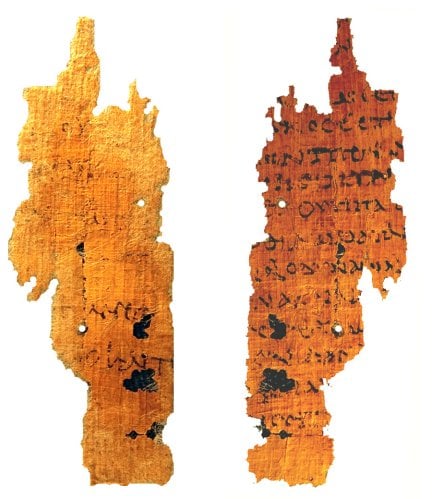
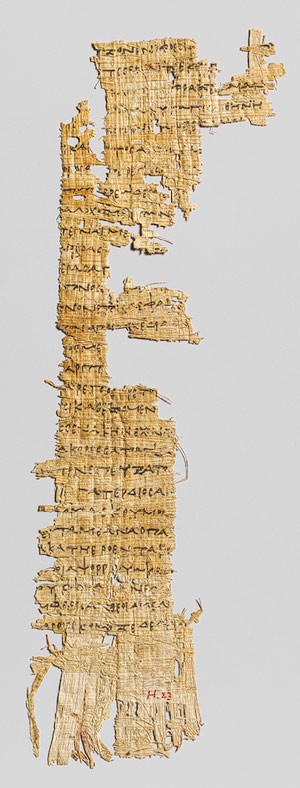
Appropriating With a Purpose
The first category of challenges for Virgil is that of how to reconcile the history of a doomed and conquered Troy into the establishment of an unconquerable Rome. In Book 8, Virgil directly addresses this anxiety by having Evander clearly state Aeneas’s lineage’s superiority to the lineage of Priam.[1] This infers that the fall Priam’s line was capable of; Aeneas’s line is incapable of. Other cited passages speak to the unconquerable quality Virgil is laboring to give Rome despite its roots in human fallibility. It seems obvious that such a task on Virgil’s part would necessarily, given time, subvert itself. The Roman Empire did eventually fall. This inevitability speaks to the futility of Virgil’s task. The most likely explanation for such a short-sighted effort in futility is, as Virgil’s narrator tells us:
…The Mind of man
Knows neither fate nor future doom
Nor moderation when elated by fortune.
The hour will come… (10.603-606)
If these are Virgil’s words, obviously it is not his mind that is elated by fortune. A more likely candidate is Caesar Augustus who wants Virgil to write an epic that Virgil quite likely knows will not ring true against the test of time. This is in contrast to the Homeric epics, which did not seek to establish an unconquerable nation, but rather chronicled their last, greatest war and the underlying human motives that drove the Bronze Aged Greeks to their downfall.
This brings up another category of challenges for Virgil.[2] How can he appropriate the events of a story used to preserve the Greek’s cultural memory of a doomed and lost past to create an artificial Roman history that exemplifies her dynastic and unconquerable fate? One example from the text is Virgil’s treatment of the role of the underworld. When in the Odyssey, heroes in the underworld such as Achilles, speak of the past and how they would give anything to trade their glorious histories with that of a farmer if only the farmer were to live into ripe old age; one can clearly see ideals important to the early Iron Age Greeks being stressed in a social instructive manner. Many of those in the underworld in the Aeneid, and particularly those associated with the history of Rome in much the same fashion Achilles was associated with the history of Greece, do not speak of the proper way to live on earth at all. They speak, rather, of the future glories of Rome.[3] This shows Virgil at work establishing Roman superiority over Trojan and Greek traditions, but also reveals the lack of foresight that is the price Virgil must pay in order to write the story of the unparalleled establishment of unconquerable Rome. That is the price all propaganda must pay.
This epimethean lack of foresight concerning Rome’s true fate undermines the idea that both the Roman people and the Roman epic are superior to the Trojan traditions they are appropriating as their own. The Roman mind, in this respect, certainly does seem “elated by fortune." Virgil, being a perfectionist, could very well have realized that every opportunity the vehicle of the epic he had appropriated brought him to aggrandize Rome and make sure Augustus would be pleased was a lost opportunity to enrich the lives of those who listened to the epic in the way the Homeric epic could. There is no solution to this in a culture without free speech, as most definitely Virgil was not free in anyway to besmirch Rome or Augustus, and this could again be impetus for Virgil’s request to have the manuscript destroyed.
More on Epic Poetry...
- Literature You Should Own, But Probably Don't. Part 1: Epic Poetry (Iliad, Odyssey, Aenied, Etc.).
This is part one in a new series of hubs all of which are designed to inform and guide anyone who might want to know a little bit more about the rich tradition of art, letters and philosophy we have inherited...
Rather than pursue the question of Virgil’s dissatisfaction further, the question of the significance of Virgil’s appropriation of Homer in light of the larger western literary tradition must be addressed. It must be said that it cannot be decided whether Virgil informed those who came later, or if it is the minds of the writers that are similar and therefore turn to similar methods, or even if it is that the type of culture that permeates western tradition lends itself to this sort of enterprise, but regardless, Virgil is significant because of his place at the beginning of the tradition and also because the motivation behind his appropriation crops up again and again.
[1] Other evidence of Virgil appealing to Trojan greatness while at the same time asserting Roman superiority to this lineage he is claiming for them can be found at, 6.896-899, 8.40-74, 11.345-350, 12.990-1000.
[2] It should be noted that a third challenge exists which will not be discussed in this paper although it finds resonance with the conclusion being drawn. This challenge is the challenge Virgil has of improving and aggrandizing an overwhelming amount of mythological tradition surrounding the Trojan War when he does not have near as much cultural knowledge or numbers of Roman myths and heroes with which to improve the Trojan tradition into an obvious better Roman tradition. It is probably this attitude of the Romans that led them to renaming the entire Greek Pantheon of Gods save one or two.
[3] Other examples of Virgil’s appropriations replacing social and moral instruction of the Homeric Epic with dynastic propaganda can also be found in the words of prophecy, the overtly positive image of Aeneas (by contrast to conflicting views of all heroes in Greek Epics), and also the several mentions of Augustus (using the Epic to secure the ruler’s position in the minds of the people rather than using it to secure civilized behavior like Homer did).
Books on Virgil
Books on Homer
What this first example of appropriation, or borrowing of another culture’s mythology, says about our literary tradition’s relationship with appropriation, first and foremost, is that we appropriate other culture’s traditions to aggrandize our own enterprise. Whether historically speaking of European Empires, the crusades, or Milton and Dante’s appropriation of Virgil’s underworld, the idea of expansion is at heart here, and as stated already, Virgil did it first. Furthermore, like Virgil, we appropriate to not only show our understanding of the past, but also our superiority to that past. This can be seen in the writings of Descartes, the work of nineteenth century scientists, or even the evolution of political power through western history. This shows Virgil being in the typical western position of being tied to the past for a claim to authority while at the same time, for diverse reasons, feeling superior or beyond that past. This is perhaps more human than strictly western, but it has been a driving force in the tradition that is born of Virgil.
If we can see the parallels at work in Virgil’s appropriation that follow the mindset of the Roman Empire, and can also understand the challenges Virgil felt he never overcame in the realization of these appropriations, it becomes reasonable to ask the question of western culture that Virgil forces us to ask of the Roman Empire; is it characterized by it’s ignorance of “future doom” because of its elation over its rich fortunes (10.604)? The answer to this question requires much investigation, but this paper suffices to say that Virgil gives us an ominous picture of the depravity of the mind of man when in power, both in its short-sidedness and its affinity for impossible enterprises such as infinite aggrandizement. One would be well to listen to Aeneas’ words, which perhaps are Virgil’s, as he speaks as a father to future sons and generations:
Learn how to be a man from me, my son;
Learn good fortune from others…
…When you come of age,
See to it that you remember the example
Of your kinsmen… (12.536-541)
Works Cited
Homer. Iliad. Trans. Stanley Lombardo.
Homer. Odyssey. Trans. Stanley Lombardo.
Lombardo, Stanley. Translator’s
Preface. Aeneid. By Virgil.
Virgil. Aeneid. Trans. Stanley Lombardo.
Other Hubs in this Series...
- The Great American Anti-Hero: Faulkner's Thomas Sutpen as the Uniquely American Version of Joseph Ca
We have a few old mouth-to-mouth tales; we exhume from old trunks and boxes and drawers letters without salutation or signature, in which men and women who once lived and breathed are now merely initials... - Evolution in Literature: An Analysis of William Blake's "The Marriage of Heaven and Hell" and the Bi
ven the status of the Bible in the western literary tradition as one of the most appropriated and alluded to of all ancient and religious texts, it is not unusual that William Blake writes so extensively about... - Literary Origins: Autonomy in the Kalevala as a means to re-evaluate the tradition of the Western Pa
The tradition of oral poetry is shared amongst many ancient cultures, traditions and language families. While there are many similarities, both in the mechanics and the subject matter of these ancient texts,... - Literary Origins: Shakespeare's Creative Wordplay: A Linguistic Analysis of Hamlet's Catachreses.
The reputation of Hamlet as one of Shakespeares greatest plays often times overlooks one of the greatest achievements of the play. While many scholars acknowledge the play as the birth of the modern...







